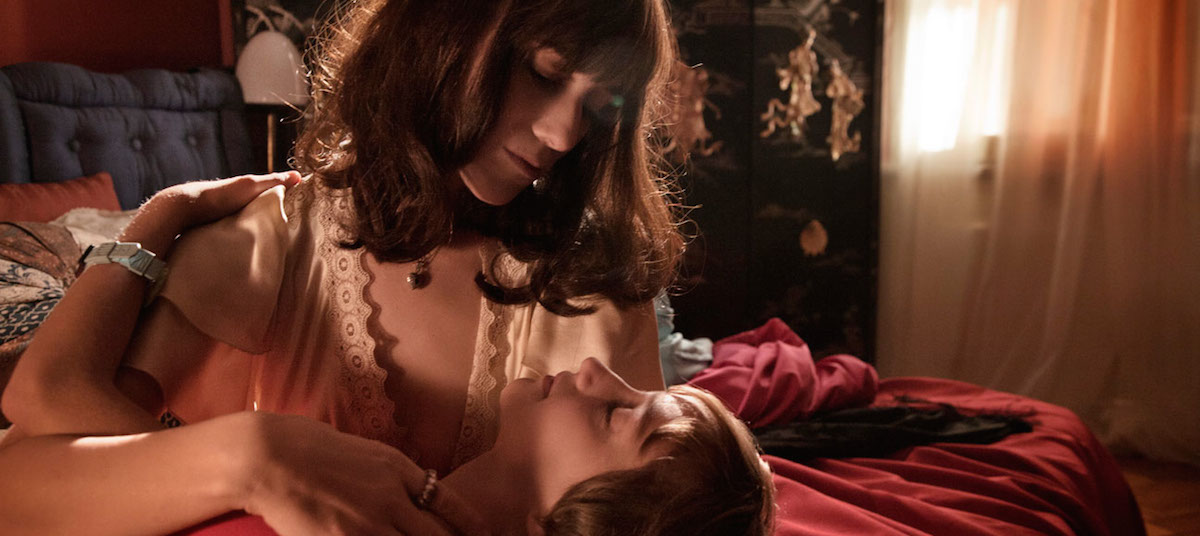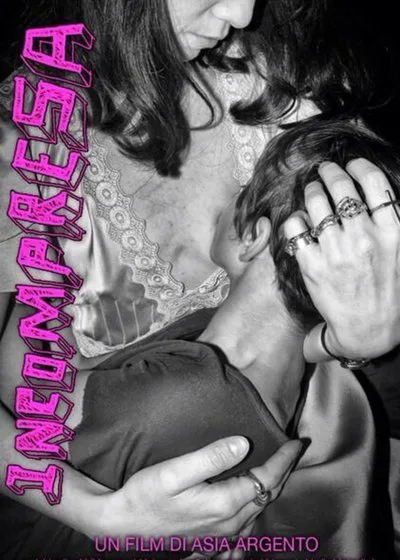The early reviews of “Misunderstood,” the third directorial effort from live-wire Renaissance woman Asia Argento, have described it as being an autobiographical tale. That is correct to a certain point—there are any number of parallels between what is known about her life and what she has put up on the screen. However, instead of simply creating the big-screen equivalent of a diary, which is what it might have become in lesser hands, she has transformed her experiences into a narrative that can be understood and appreciated by audiences who come into the film without any great working knowledge of her personal story. The result is an occasionally strange, occasionally brutal and occasionally lovely work that goes up on the shelf with “The Ocean of Helena Lee” and “Girlhood” as one of the more impressive coming-of-age tales of recent times.
Set in 1984, the film focuses on Aria (Giulia Salerno), a nine-year-old Italian girl who is the daughter of a famous movie star (Gabriel Garko) and a celebrated concert pianist (Charlotte Gainsbourg). From a glance, it sounds like the perfect life but things are far from that for Aria. At school, she is whip-smart but the other kids and teachers, perhaps resentful of her parentage, treat her like a freak and her only friend is classmate Angelica (Alice Pea), with whom she sneaks the occasional cigarette and indulges in Barbie doll play that goes way beyond the suggested age limit on the box. As for her home life, we get an early idea of how that goes at a supremely tense family dinner involving her, her parents and her stepsisters—Dad’s monstrous daughter Lucrezia (Carolina Poccioni) and Mom’s somewhat nicer daughter Donatina (Anna Lou Castoldi)—which quickly devolves into a brutal fight in which her parents viciously tear into each other while the stepsisters side with their respective parents and leave Aria caught in the middle.
Not surprisingly, Aria’s father walks out soon after this, taking Lucrezia with her, but life does not get noticeably better for Aria. Her mother makes vague promises that they will be going on a Caribbean cruise soon but when the time comes, she actually goes with one of the many sleazy boyfriends that she acquires and Aria is shipped off to her dad’s place, where Lucrezia lives like a queen and she is essentially sequestered to the room where all the other unwanted junk accumulates. Along the way, Aria acquires a black cat named Dac and they eventually become inseparable. Dad is not quite as thrilled with this development as he is hyper-superstitious and eventually sends her packing back to her mother, hurling plenty of invective for the trip back.
This begins a pattern in which she is shuttled between the two homes, where she is looked upon mostly as an inconvenience by two raging egomaniacs and briefly tolerated until one sends her packing on a whim whenever she gets in their way. At one point, both of them give her the boot at the same time and she winds up spending the night on the street in what is paradoxically one of her happiest moments. Things are equally uneasy at school when Angelica begins hanging out with one of the popular mean girls and the dreamy guy she is crushing on refuses to give her the time of day, making for plot threads that come together brutally during a scene where Aria throws a party at her dad’s vacant home that quickly goes awry.
As an actress, Asia Argento is one of those commanding personalities whose mere presence brings a certain jolt of electricity to any film smart enough to include her—with her fierce attitude, keen intelligence and feral sensuality, she can transform even the most mundane material into a kind of cinematic daredevil act that you cannot tear your eyes away from as long as she is on the screen. As a filmmaker, she was able to maintain many of those qualities in her first two directorial efforts, the overtly autobiographical “Scarlet Diva” (2000), in which she played a self-destructive young actress, and “The Heart is Deceitful Above All Things” (2004), a disturbing portrait of the most nightmarish childhood imaginable (one that turned out to be imagined when its source, the allegedly autobiographical writings of JT Leroy, turned out to be pure fiction—both the work and the author). “Misunderstood” marks her return to the director’s chair after an eleven-year absence and while she has maintained many of those qualities—as many as possible when dealing with a story about a nine-year-old girl—she has also added a number of new arrows to her directorial quiver that are undeniably appealing.
While the story is openly inspired by her own life (“Aria” is technically Argento’s actual first name) and is certainly personal to her in any number of ways (right down to casting her own daughter, Castoldi, as Donatina), she has worked here to make this film more accessible than her previous efforts. While those projects, as excellent as they were, made for some heavy lifting with their relentlessly gloomy tones, Argento manages to find a certain degree of dark humor amidst the otherwise grim proceedings that helps to keep it mostly free of the mawkish self-pity that it always seems on the verge of teetering into. Visually, it is also a marvel as ace cinematographer Nicola Pecorini creates an offbeat look that pays tribute to the super-stylish horror epics from Argento’s father, Dario. Argento also gets a number of strong performances from her cast—Salerno is a real find as young Aria, and Poccioni and Gainsbourg (playing the role that Argento herself might have taken once upon a time) are both hilarious and horrifying as two people who probably never should have been allowed to become parents.
“Misunderstood” only steps wrong during its final moments when Aria directly addresses the audience and explains “I tell you all this not to make you feel sorry for me, but just so you will understand me better and maybe be a little bit nicer.” Simply put, this bit doesn’t work because it does cause the film to slip into the mawkishness that it had so deftly avoided for the rest of its running time. It’s also a clumsy attempt to sell us on a character that most of us will already adore by then. Yes, Aria is having a rough time but as we see her navigate the minefield of her pre-adolescence, we can already see the strong and resilient woman that she is sure to become—the kind of woman who will one day look back at those past miseries with a certain amount of humor and self-awareness, and maybe even turn those heartaches into a film not unlike this one.




















